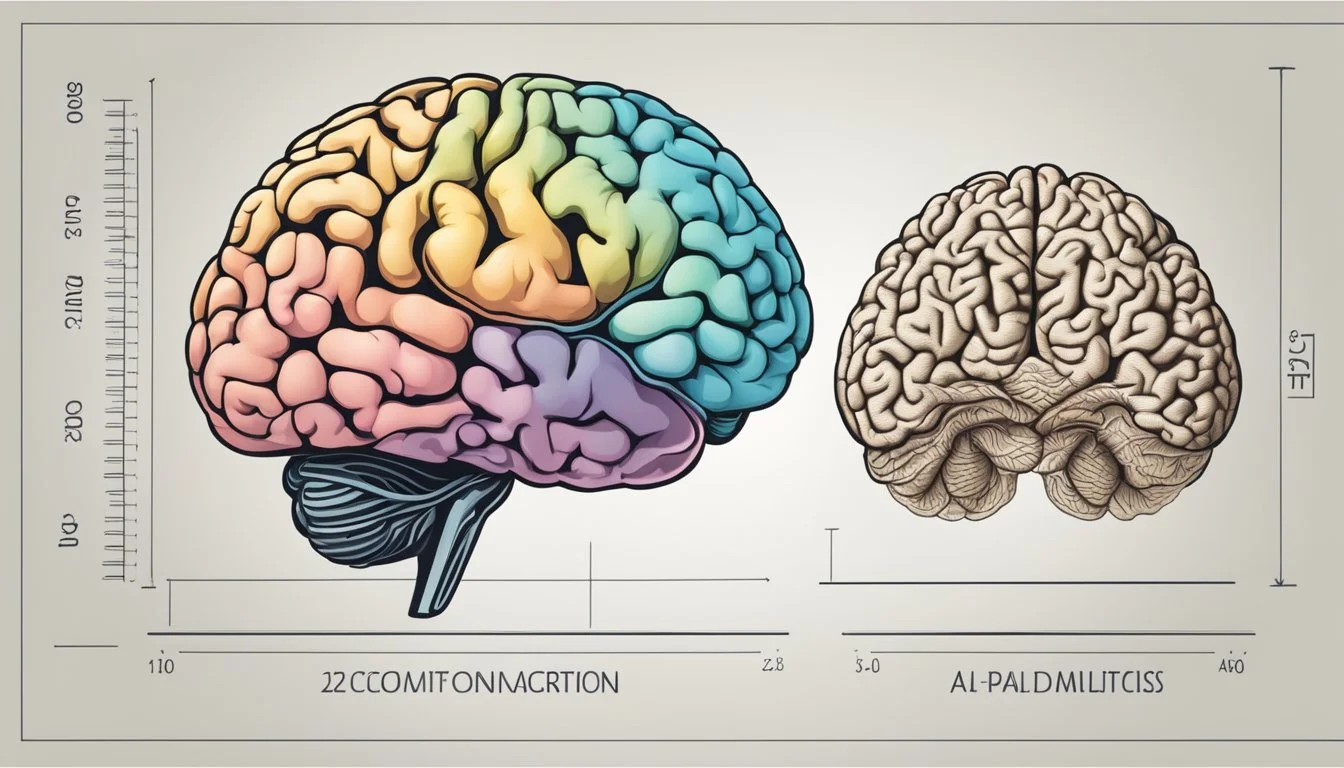6 Surprising Facts About Intelligence and Genetics
New Research Challenges Old Assumptions
Intelligence and genetics are two fascinating fields that intersect in complex ways. Both play crucial roles in shaping human abilities, health, and behavior. Recent research has shed light on surprising connections between our genetic makeup and various aspects of intelligence.
Understanding the interplay between genetics and intelligence can provide valuable insights into human cognition and potential. This knowledge has implications for education, health, and personal development. While intelligence is influenced by many factors, including environment and experiences, genetic factors contribute significantly to individual differences in cognitive abilities.
1) Intelligence is not solely determined by genetics
Intelligence results from a complex interplay between genetic and environmental factors. While genes play a role, they do not exclusively dictate a person's cognitive abilities.
Environmental influences such as education, nutrition, and early childhood experiences significantly impact intellectual development. The home environment, parenting style, and access to learning resources contribute to shaping cognitive skills.
Studies have shown that the genetic influence on intelligence varies throughout a person's life. It appears to increase from about 20% in infancy to 40% in childhood, suggesting that environmental factors have a stronger impact early on.
The relationship between genes and intelligence is intricate. Genetic correlations exist, but they do not imply a simple cause-and-effect relationship. Many genes likely contribute to intelligence in small ways, rather than a single "intelligence gene" determining cognitive ability.
Researchers continue to explore the complex interactions between genetics and environment in shaping intelligence. This ongoing research helps to better understand the factors influencing cognitive development and how to support optimal intellectual growth.
2) IQ scores can change over a lifetime
IQ scores, once thought to be fixed, can actually change over a person's lifetime. Research has shown that intelligence is not a static trait but can fluctuate due to various factors.
Education plays a significant role in shaping IQ scores. As individuals learn and acquire new skills, their cognitive abilities may improve, potentially leading to higher IQ test results.
Environmental factors also influence IQ scores. Socioeconomic status, nutrition, and overall health can impact cognitive development and performance on intelligence tests.
Age-related changes in IQ scores have been observed. Children and adolescents may experience more significant fluctuations as their brains develop rapidly. In contrast, adult IQ scores tend to be more stable.
Studies have reported a wide range of IQ score changes in individuals over time. Some people have shown increases of up to 23 points in verbal IQ, while others have experienced decreases of up to 28 points.
Lifestyle choices can affect cognitive function and, consequently, IQ scores. Engaging in mentally stimulating activities, maintaining good physical health, and avoiding harmful habits may contribute to preserving or enhancing intellectual capabilities.
3) Environment plays a significant role in intellectual development
While genetics provide a foundation for intelligence, environmental factors have a substantial impact on cognitive development. Early childhood experiences, educational opportunities, and socioeconomic status all contribute to shaping intellectual abilities.
Stimulating environments and quality education can enhance cognitive skills, allowing individuals to reach their full potential. Access to resources, such as books and educational materials, can foster curiosity and promote learning.
Nutrition and health also play crucial roles in brain development. Proper nutrition during childhood supports optimal cognitive function, while poor health can hinder intellectual growth.
Social interactions and family dynamics influence cognitive development as well. Supportive relationships and positive reinforcement can boost confidence and motivation to learn.
Stress and adversity can negatively impact cognitive abilities, highlighting the importance of a nurturing environment. Exposure to toxins or lack of adequate healthcare can also impede intellectual development.
Studies suggest that environmental factors account for a significant portion of IQ differences among individuals. This underscores the importance of creating supportive and enriching environments to promote intellectual growth.
4) Identical twins can have different IQs
Identical twins share the same genetic makeup, but their IQ scores can differ significantly. This surprising fact challenges the notion that intelligence is solely determined by genetics.
Environmental factors play a crucial role in shaping cognitive abilities. Studies have shown that twins raised in different environments can develop varying IQ levels.
One notable case involved identical twins separated at birth and raised in different countries. Despite their shared DNA, researchers found a substantial difference in their IQ scores.
The twin raised in the United States exhibited a lower IQ compared to her sister in South Korea. This disparity highlights the impact of cultural and educational differences on cognitive development.
Factors such as nutrition, education quality, and societal expectations can influence IQ scores. Even twins raised in the same household may experience subtle environmental differences that affect their cognitive abilities.
These findings emphasize the complex interplay between genetics and environment in determining intelligence. While genes provide a foundation, external factors can significantly shape an individual's cognitive potential.
5) Epigenetics influences intelligence
Epigenetics refers to changes in gene expression that don't alter the DNA sequence itself. These changes can be influenced by environmental factors and lifestyle choices.
Recent research suggests that epigenetic mechanisms play a role in shaping intelligence. Environmental factors like nutrition, stress, and education can trigger epigenetic modifications that affect cognitive abilities.
Studies have found that certain epigenetic markers are associated with higher IQ scores. For example, methylation patterns on specific genes have been linked to improved memory and problem-solving skills.
Epigenetic changes can be passed down through generations, potentially affecting the intelligence of offspring. This highlights the complex interplay between genetics, environment, and cognitive abilities.
Early life experiences appear particularly important in shaping epigenetic patterns related to intelligence. Positive environmental factors during childhood may enhance cognitive development through epigenetic mechanisms.
Understanding epigenetics offers new insights into the malleability of intelligence. It suggests that cognitive abilities are not solely determined by genetics, but can be influenced by external factors throughout life.
6) Brain structure differences affect cognitive abilities
Research has shown that variations in brain structure play a significant role in cognitive abilities. Different regions of the brain contribute to various aspects of intelligence and problem-solving skills.
Studies have revealed that the size and composition of certain brain areas correlate with cognitive performance. For instance, the prefrontal cortex, involved in complex decision-making and planning, tends to be larger in individuals with higher IQ scores.
White matter integrity, which facilitates communication between brain regions, also impacts cognitive function. Individuals with more efficient neural networks often demonstrate superior cognitive abilities.
Gray matter volume in specific areas, such as the parietal and temporal lobes, has been linked to particular cognitive skills. These include spatial reasoning, memory, and language processing.
Neuroimaging techniques have provided valuable insights into these structural differences. They allow researchers to examine brain anatomy and connectivity patterns in relation to cognitive performance.
While genetics influence brain structure, environmental factors also play a role in shaping neural networks. This interplay between nature and nurture contributes to the complex relationship between brain structure and cognitive abilities.
Defining Intelligence
Intelligence is a complex and multifaceted concept that encompasses various cognitive abilities. It involves reasoning, problem-solving, learning, and adapting to new situations.
Different Types of Intelligence
Researchers have identified several types of intelligence. Fluid intelligence refers to the ability to solve novel problems and reason abstractly. Crystallized intelligence involves using acquired knowledge and skills. Spatial intelligence deals with visualizing and manipulating objects mentally.
Emotional intelligence encompasses understanding and managing emotions. Musical intelligence relates to recognizing and creating musical patterns. Bodily-kinesthetic intelligence involves physical coordination and dexterity.
Some theories propose up to nine distinct types of intelligence. This broader view challenges traditional notions of intelligence as a single, fixed trait.
Measuring Intelligence
Intelligence quotient (IQ) tests are widely used to measure cognitive abilities. These tests assess various skills like verbal comprehension, perceptual reasoning, and processing speed.
The Stanford-Binet and Wechsler scales are common IQ tests. They provide standardized scores with 100 as the average. Scores above 130 typically indicate high intelligence.
Critics argue IQ tests have limitations. They may not capture all aspects of intelligence or account for cultural differences. Alternative assessments focus on practical skills and real-world problem-solving abilities.
Neuroimaging techniques offer new insights into brain function related to intelligence. These methods help researchers study neural networks associated with cognitive processes.
The Role of Genetics in Intelligence
Genetic factors play a significant part in shaping human intelligence. Twin and family studies have consistently shown that genetic differences contribute to variations in intelligence test scores.
Genetic Markers Linked to Intelligence
Scientists have identified specific genetic markers associated with cognitive abilities. Genome-wide association studies (GWAS) have uncovered numerous gene variants that correlate with intelligence. These genetic predictors, known as Genome-wide Polygenic Scores (GPS), have improved in recent years.
The latest GPS for educational attainment can now predict over 10% of the variance in intelligence scores. This represents a substantial increase from just 1% a few years ago.
Researchers continue to refine these genetic markers, aiming to better understand the complex interplay between genes and intelligence.
Nature vs Nurture
While genetics play a crucial role, environmental factors also significantly influence intelligence. The heritability of intelligence changes throughout a person's life.
In infancy, genetic factors account for about 20% of intelligence differences. This percentage increases to around 80% in later adulthood.
Environmental factors, such as education, nutrition, and early childhood experiences, can impact cognitive development. These elements interact with genetic predispositions to shape overall intelligence.
Scientists agree that both nature and nurture contribute to brain development and cognitive abilities. Genetics may provide intellectual capacity, but environment determines whether an individual reaches their full potential.




